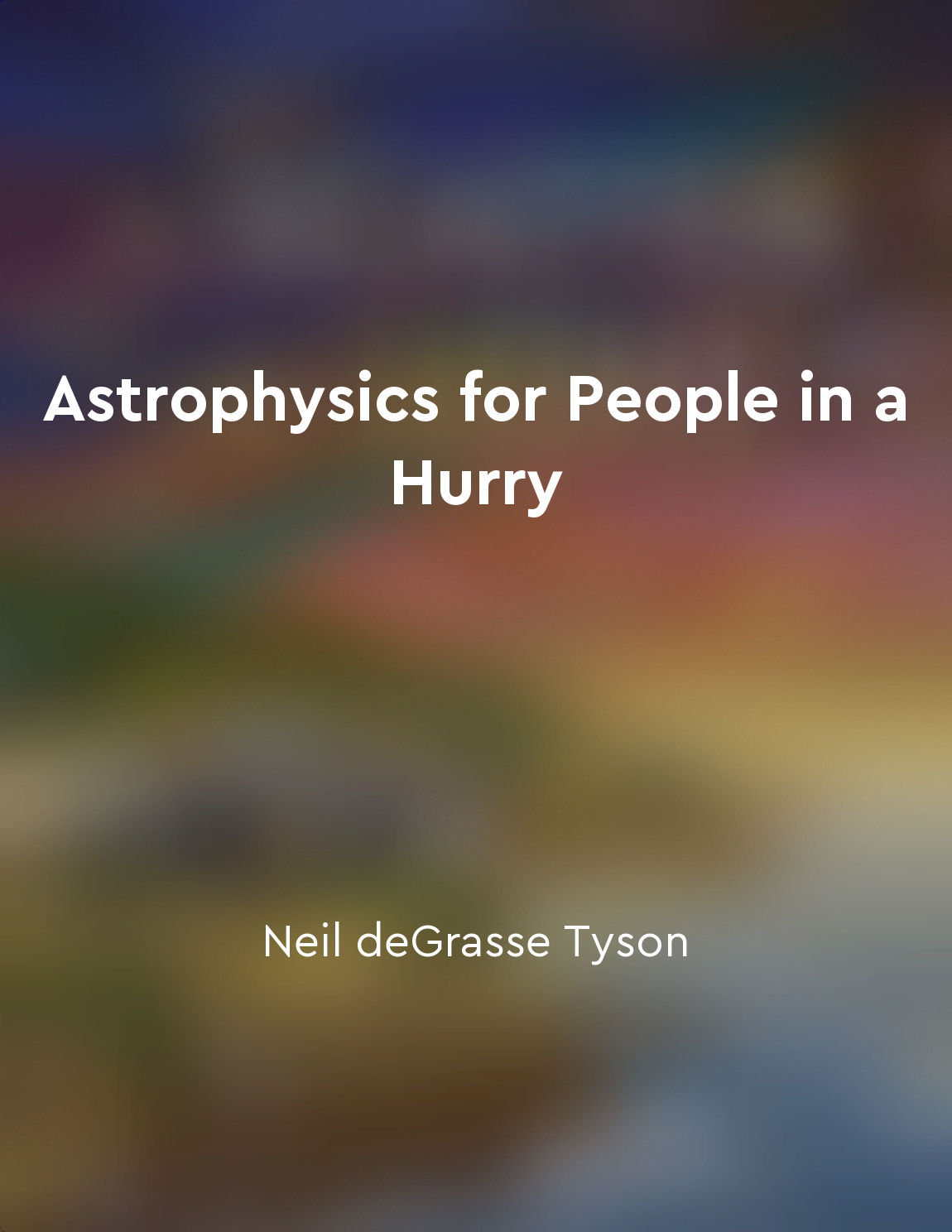Astronomy studies space from "summary" of Space Encyclopedia by David A. Aguilar,Christine Pulliam,Patricia Daniels
Astronomy is the study of space, the vast universe that surrounds us. It involves observing and analyzing celestial objects such as stars, planets, galaxies, and other phenomena. Through the use of telescopes, astronomers are able to gather information about these objects and understand their characteristics, behavior, and interactions. By studying space, astronomers aim to answer fundamental questions about the nature of the universe and our place in it. They seek to understand how planets form, how stars evolve, and how galaxies are structured. Astronomy also plays a crucial role in addressing scientific mysteries such as the existence of dark matter and dark energy, the possibilities of extraterrestrial life, and the origins of the universe itself. Astronomers use various tools and techniques to study space, including ground-based telescopes, space telescopes, spectroscopy, and computer simulations. These tools allow them to collect data on distant objects, analyze their properties, and make predictions about their behavior. Through careful observation and experimentation, astronomers are able to uncover new discoveries and expand our knowledge of the cosmos. One of the key aspects of astronomy is the collaborative nature of the field. Astronomers around the world work together to share data, collaborate on research projects, and validate each other's findings. This cooperative approach helps to ensure the accuracy and reliability of scientific discoveries in the field of astronomy.- Astronomy is a fascinating and complex discipline that offers insights into the mysteries of the universe. By studying space, astronomers continue to make groundbreaking discoveries that deepen our understanding of the cosmos and inspire awe and wonder in people of all ages.
Similar Posts
The power of explanation
Explanation is a powerful tool that humans possess. It allows us to make sense of the world around us, to understand why things...
Cosmic radiation fills empty space
In the vast expanse of space, there is more than meets the eye. While it may seem empty to the naked eye, it is actually teemin...
AI needs ethical oversight
Artificial intelligence has the potential to transform our world in ways we can hardly imagine. It can help us solve complex pr...

The beauty of the night sky is a reminder of our place in the cosmos
The night sky has a way of putting things into perspective. When we gaze up at the stars, we are reminded of our place in the v...

The search for extraterrestrial intelligence persists despite challenges
The quest to find signs of intelligent life beyond Earth remains a formidable challenge, plagued by various obstacles that hind...
The quest to unlock the mysteries of the universe drives scientific discovery
The pursuit of knowledge has always been a driving force in the history of humanity. From the earliest civilizations to the mod...

The multiverse theory suggests that our universe is just one of many
The multiverse theory proposes that our universe is not alone. It posits the existence of multiple universes, each with its own...
Seeking new insights into the nature of space and time
Abraham Pais delves into the intricate realm of physics, where scientists are constantly exploring the fundamental nature of sp...
Our origins are intertwined with the stars that formed billions of years ago
It is a remarkable fact that the atoms of our bodies are traceable to the stars that manufactured them in their crucibles long ...
The search for extraterrestrial life is an ongoing endeavor
The quest for extraterrestrial life has captivated the minds of scientists and the public for centuries. Humanity has always lo...

